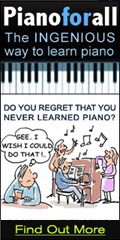![]()
  |

Peter Gabriel (1978)
Atlantic SD 19181
Released: July 1978
Chart Peak: #45
Weeks Charted: 10
 Peter Gabriel's first solo album promised some sort of reconciliation between art rock and the rock mainstream: it had the sense of a breakthrough in negotiations between warring factions. Its two most direct hard-rock songs, "Modern Love" and "Solsbury Hill," were among 1977's most underrated.
Peter Gabriel's first solo album promised some sort of reconciliation between art rock and the rock mainstream: it had the sense of a breakthrough in negotiations between warring factions. Its two most direct hard-rock songs, "Modern Love" and "Solsbury Hill," were among 1977's most underrated.
Gabriel's second solo LP (which has the same title, or lack of one, as the debut) makes similar gestures to the mainstream, yet focuses more often on the progressivism he helped pioneer as a founding member of Genesis. There are still some good rock numbers -- "On the Air" and "D.I.Y." most notably, as well as the kinky reggae song, "A Wonderful Day in a One-Way World" -- but Gabriel, aided by producer Robert Fripp's banks of crashing guitar chords and various electronics, has discarded most of the gloss of the first record for a personal vision that is darker, more frightening and not quite as accessible.
As a lyricist, Gabriel is forever given to indirection and opacity: an underlying theme parallels the war between the sexes and man's war with the environment -- or at least I think it does, since nothing is as straightforward enough for certainty. As a composer, Gabriel displays similar meandering tendencies, and Fripp emphasizes these aspects. Given different arrangements, the melodies of almost any of these songs might easily be transferred into a pop context.
Clearly, I don't find this Peter Gabriel as enticing as last year's, but I certainly can't dismiss it. If the prettiest moments are more difficult to listen to, the most difficult passages are easier to grasp. On the road to dêtente between progressive rock and whatever it is most of us care for, the new album seems an acceptable way station -- encouraging enough to make tuning in for the next installment worthwhile, yet obtuse enough to make plain the difficulty of traveling this road.- Dave Marsh, Rolling Stone, 9-7-78.
Bonus Reviews!
Peter Gabriel, former lead singer of Genesis, is a sort of gothic punk and deserves more blame than most for the existence of such trash as Kiss. On the other hand, the latter-day men in greasepaint and platform shoes and others whose gimmick is looking ridiculous did miss a point about Gabriel: the music that surrounds him is not a total loss, and the musicians behind him play with some skill (though, in this case, they seem to have few ideas beyond some kind of theory about the glory of repetition). Still, he's a mediocre, run-of-the-mill rock singer with another of those high-pitched English-boy voices hiding as much as possible behind the instrumentals. A number of these things -- while they'd be listenable if we could get someone to sing them -- probably would prove increasingly sappy the more words you could make out. Gabriel might still be good theater; I haven't seen him lately so I don't know. But I do know that I'd rather look at this album than listen to it.
- Noel Coppage, Stereo Review, 10/78.
One of those records that is diminished by the printed lyrics that are its reason for being. Musically, Gabriel combines with producer Robert Fripp for alert art-rock that gets down around atonality rather than jumping into the astral-noodle soup, with Roy Bittan's romantic flourishes as welcome as "D.I.Y," a hard-rock landmark in a hard-rock year. But even though it makes you sit up when it comes on the radio, it's basically program music, designed to support words as elitist (and programmatic) as the social commentary Gabriel used to essay in his Genesis days. Remember the immortal words of Chuck Berry: beware of middlebrows bearing electric guitars. B-
- Robert Christgau, Christgau's Record Guide, 1981.
King Crimson's Robert Fripp produced the followup to Gabriel's first solo album. Overall, this effort is more uneven, but there are some real highlights in the form of "D.I.Y." and the aggressively dissonant rocker "On the Air." * * *
- Rick Clark, Musichound Rock: The Essential Album Guide, 1996.
![]() Reader's Comments
Reader's Comments
No comments so far, be the first to comment.
